Immersive Learning and Educational Gamification
In the educational metaverse, immersive learning introduces students to a gamified experience where knowledge retention and engagement levels surge. Contrary to traditional classroom settings, virtual reality (VR) and augmented reality (AR) tools in the metaverse allow learners to step into scenarios that mimic real-life or fantastical situations. As a result, students can practice their skills in safe, controlled environments that were previously inaccessible due to logistical or monetary constraints.
Collaborative Spaces and Social Learning
The educational metaverse fosters collaborative learning by bringing together individuals from diverse geographical, cultural, and academic backgrounds. Virtual spaces accommodate synchronous and asynchronous interactions, enabling students to grasp collective problem-solving and cross-cultural communication skills. These social dynamics are essential to educational development and mirror real-world professional environments, preparing students for the complexities of the global workforce.
- Interactive Virtual Classrooms
- Global Remote Learning Communities
- Peer-to-Peer Learning and Mentorship
Customized Learning Trajectories
The metaverse’s potential to personalize education is arguably one of its most profound advantages. In these virtual landscapes, adaptive learning technologies can track student progress and tailor content to individual learning styles and paces. Artificial Intelligence (AI) and data analytics continually refine learning paths, ensuring that each student’s educational journey is both challenging and attainable. This personalized touch optimizes student outcomes and helps educators identify areas that require additional focus or resources.
Emerging Technologies in the Educational Metaverse
Immersive Learning Environments
One of the most profound shifts in educational technology is the advent of immersive learning environments. Such platforms utilize virtual reality (VR) and augmented reality (AR) to create engaging, interactive educational experiences. They allow learners to explore historical sites, conduct virtual lab experiments, or even travel to space without leaving their classroom. The sensory-rich experiences lead to improved retention and understanding of complex subjects.
Artificial Intelligence and Personalization
In the educational metaverse, artificial intelligence (AI) plays a central role in customizing learning experiences. AI algorithms can adapt to learners’ performance and preferences to offer personalized curricula. This individualized approach helps in catering to diverse learning styles and paces, ensuring that every learner can maximize their potential.
Intelligent Tutoring Systems
AI-powered tutoring systems offer one-on-one instruction without the need for human intervention. These systems respond to student queries, provide feedback, and help in solving complex problems, just like a human tutor would. The technology is particularly beneficial in remote or underserved areas where access to quality tutors is limited.
Automated Grading and Assessment
With automated grading systems, educators can save time and ensure fair and consistent assessment. These systems are not only limited to multiple-choice tests but can now assess written responses and project work. This allows for timely feedback, enabling students to improve their work iteratively.
Blockchain for Certification and Credentialing
The use of blockchain technology is revolutionizing the way educational credentials are issued and verified. Blockchain provides a secure and unalterable ledger for recording certifications, which is particularly valuable in preventing fraud. It ensures that credentials remain valid and verifiable, even if the issuing institution ceases to operate, thereby enhancing the credibility of online learning certificates.
Interoperable Learning Records
Blockchain enables the creation of interoperable learner records that seamlessly transfer between institutions. This is agnostic of geographic borders, making international study and collaboration easier than ever. It offers a great deal of flexibility and mobility for the global learner population.
How the Metaverse is Transforming Traditional Education Models
Introduction to the Metaverse and Education
The concept of the Metaverse, a collective virtual shared space created by the convergence of virtually enhanced physical and digital reality, is no longer limited to the realms of gaming or social interactions alone. It’s an evolving platform that promises to revolutionize the way we learn. Traditional education models, characterized by classroom settings, textbooks, and face-to-face interactions, are being reimagined through the lens of the Metaverse, which offers a more dynamic, interactive, and personalized learning environment.
Immersive Learning Experiences Beyond the Classroom
In the Metaverse, barriers of distance and access are eliminated as it offers immersive learning experiences that extend beyond the walls of a traditional classroom. Through the use of virtual reality (VR) and augmented reality (AR), students can engage in educational activities that would otherwise be impractical or impossible. From exploring ancient civilizations to conducting complex science experiments in safe, virtual laboratories, the Metaverse is expanding the scope of experiential education.
Enhancing Student Engagement with Interactive Content
One of the core benefits of the Metaverse in education is its ability to transform learning materials into interactive content. This engagement leads to higher retention of information and fosters enthusiasm for learning among students who might otherwise find traditional learning methods monotonous. The Metaverse provides opportunities for students to witness historical events, solve mathematical puzzles in creative ways, or embark on virtual field trips to distant planets—all within a day’s lesson.
Personalized and Adaptive Learning Pathways
The Metaverse enables education systems to create personalized learning experiences. Through AI and machine learning algorithms, it can adapt to the individual learning pace and style of each student, adjusting the difficulty level and content of the lessons as needed. This tailored approach helps ensure every student has the opportunity to succeed and excel at their own rate, making education more inclusive and effective.
Building Critical Thinking and Collaboration Skills
The interactive nature of the Metaverse fosters an environment where critical thinking and collaboration are integral. Students work together in virtual spaces to solve problems, create projects, and share knowledge in ways that mirror real-world interactions and workplaces. These collaborative experiences are essential for developing skills that are highly valued in today’s job market, and the Metaverse offers a platform to cultivate them.
Social Implications of Virtual Learning Environments
The integration of the Metaverse in education also brings about significant social implications. It encourages diversity by connecting students from different backgrounds in a global classroom setting, promoting intercultural understanding. In addition, it increases accessibility for individuals with physical disabilities or those living in remote locations, democratizing access to quality education.
Addressing Privacy and Security in Online Education
As with any online environment, privacy and security are paramount in the Metaverse. Ensuring safe virtual spaces for students to learn is critical, and this includes protecting sensitive data and providing safe interactions between users. As the Metaverse continues to develop, it will be essential to address these concerns to maintain a trustworthy educational environment.
Case Studies: Success Stories in the Educational Metaverse
The concept of the educational metaverse is becoming a reality as institutions leverage virtual reality (VR) to create immersive learning experiences. These success stories highlight the transformative power of the metaverse in the realm of education.
Innovative Language Learning in Virtual Worlds
One of the pioneering case studies in the educational metaverse focuses on language learning. A university in Europe created a VR platform where students engage in real-time conversational practice with AI-driven avatars. This initiative resulted in a significant improvement in language fluency compared to traditional learning methods. The metaverse environment enabled learners to practice in scenarios reminiscent of actual conversational settings, contributing to a more natural learning process.
Medical Training with Enhanced Engagement
Another case study showcases a medical school that integrated the metaverse into its curriculum for surgical training. Students were able to conduct complex procedures in a risk-free virtual environment. This approach saw an increase in student engagement and provided a safer way for young doctors to gain practical experience. Moreover, it also led to better knowledge retention, as learners could repeat procedures as often as needed, solidifying their understanding and skills.
Breaking Down Geographical Barriers in Education
Perhaps the most significant advantage of the educational metaverse is its ability to break down geographical barriers. A project run by an international educational organization connected students from across the globe in a shared VR classroom. This initiative not only fostered cross-cultural interactions but also democratized access to high-quality education resources for students in remote areas.
In each of these cases, the educational metaverse proved to be a catalyst for innovation and success. By providing an engaging, immersive, and interactive learning environment, educational institutions are set to redefine the way knowledge is imparted in the 21st century. These success stories serve as a guiding light for future programs aiming to harness the boundless potential of virtual worlds in education.
Preparing for the Future: Skills Needed to Thrive in the Educational Metaverse
Understanding the Educational Metaverse
The educational metaverse is an evolving virtual space where teachers and students can interact, learn, and create in ways that extend beyond the confines of traditional classrooms. As this digital realm gains traction, there’s a growing need for specific skill sets. To engage successfully within this immersive environment, individuals must adapt and expand their digital competencies.
The Role of Digital Literacy
Digital literacy encompasses more than just basic computer skills. In the educational metaverse, it involves a deep understanding of virtual worlds, coding basics, and the ability to navigate complex digital platforms. Enhancing these skills empowers users to be not just consumers but also creators within the metaverse landscape.
Critical Thinking and Problem-Solving
As virtual scenarios unfold, individuals are met with challenges that require innovative solutions. Critical thinking and problem-solving abilities are paramount, allowing users to approach problems methodically and devise effective strategies within the metaverse framework.
Collaboration and Communication in the Metaverse
One of the core advantages of the educational metaverse is its capacity to facilitate collaboration across geographical and cultural boundaries. Engaging with peers in the metaverse demands strong communication skills and the ability to work cooperatively on shared goals and projects.
Building Virtual Teams
In the metaverse, teamwork takes on a new dimension with participants swiftly forming and disbanding project-based groups. This dynamic requires individuals to quickly establish rapport, assign roles, and manage tasks within a virtual setting, where the nuances of non-verbal communication are often stripped away.
Embracing Adaptive Learning and Continuous Education
The fast-paced nature of the educational metaverse means that learners and educators alike must be prepared for constant evolution. Staying relevant involves a commitment to lifelong learning and the flexibility to adapt to new educational technologies and methodologies as they emerge.
The Importance of Curiosity
Cultivating a mindset grounded in curiosity is the bedrock of success in the metaverse. A curious mind is eager to explore new virtual spaces, experiment with emerging tools, and embrace the diverse learning opportunities the metaverse offers.
Conclusion
Thrive in the educational metaverse requires a mix of technical know-how, interpersonal skills, and a proactive learning attitude. By fostering these capabilities today, we set ourselves up for a future where the boundaries of education are reimagined and expanded. The metaverse is not just a passing trend; it’s a glimpse into the future of learning.

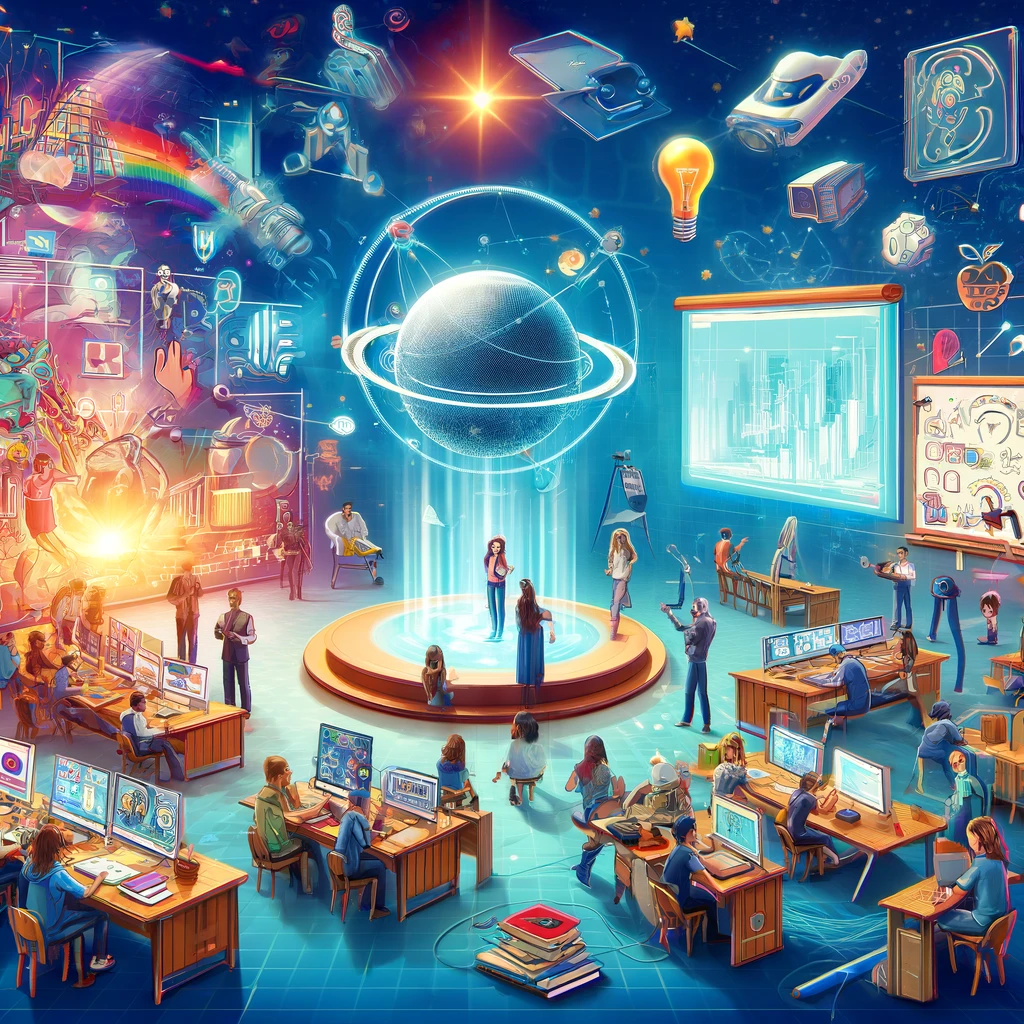
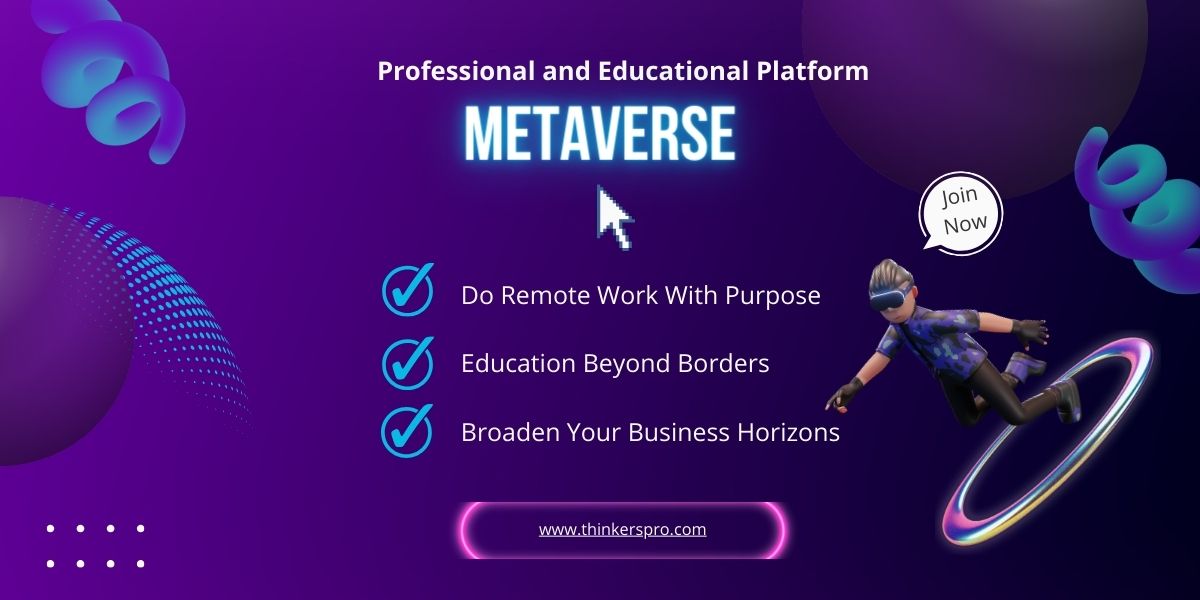

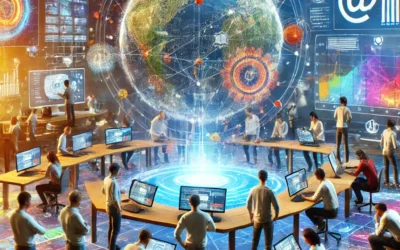
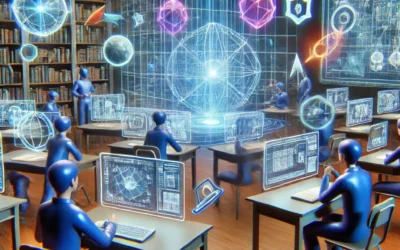
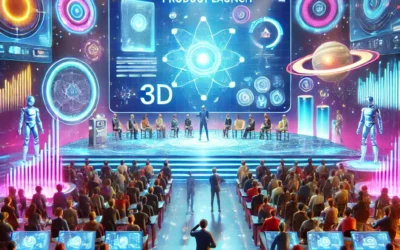
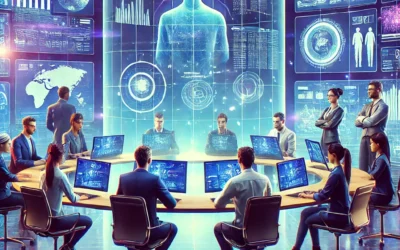
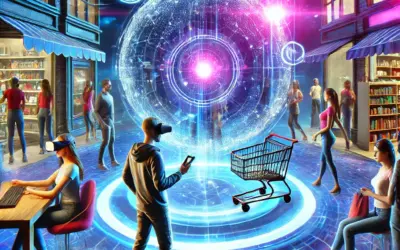
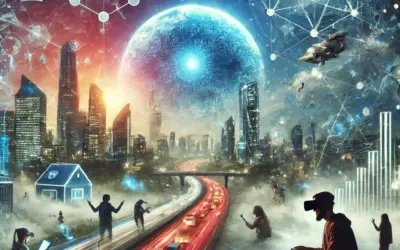
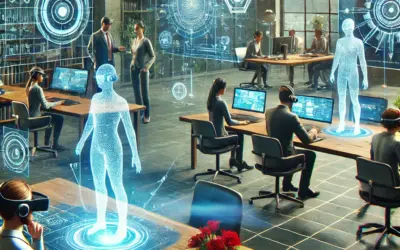
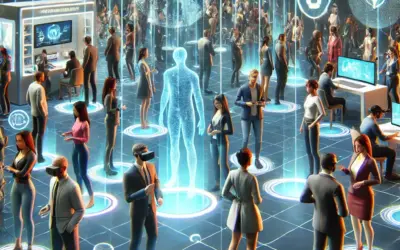
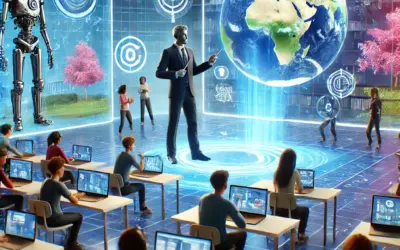
0 comentarios